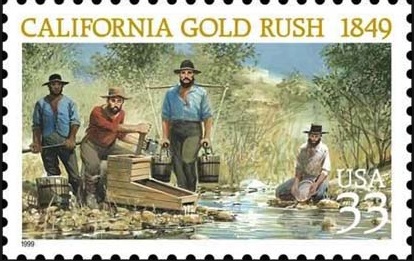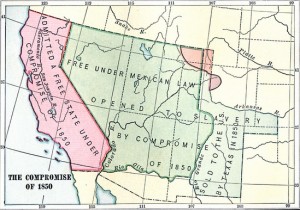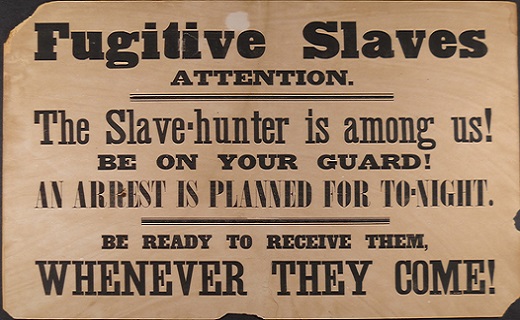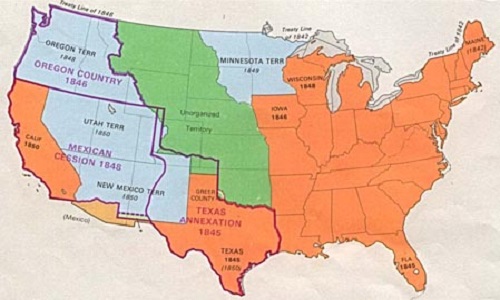The Compromise of 1850 admitted the State of California as the 16th free state of the Union.
After the US-Mexico War the territory of California was governed by the military. Starting in January 1848 people from all over country and from foreign lands started coming to California attracted by the gold rush. The increased population created a demand for a more organized and more representative government. In September and October 1849 the California Constitutional Convention met to present the proposed Constitution which outlawed slavery from the territory of California and to propose an eastern boundary. The Constitution also affirmed its application as a whole; they were not interested in following the Missouri Compromise line which would have divided the state in two.
The Compromise of 1850 admitted California as a state of the Union.
Transcription of the Provision
An Act for the admission of the State of California into the Union.
Whereas the people of California have presented a constitution and asked admission into the Union, which constitution was submitted to Congress by the President of the United States, by message dated February thirteenth, eighteen hundred and fifty, and which, on doe examination, is found to be republican in its form of government:
Section 1
Be it enacted by the Senate and House of Representatives of the United States of America in Congress assembled, That the State of California shall be one, and is hereby declared to be one, of the United States of America, and admitted into the Union on an equal footing with the original States in all respects whatever.
Section 2
And be it further enacted, That, until the representatives in Congress shall be apportioned according to an actual enumeration of the inhabitants of the United States, the State of California shall be entitled to two representatives in Congress.
Section 3
And be it further enacted, That the said State of California is admitted into the Union upon the express condition that the people of said State, through their legislature or otherwise, shall never interfere with the primary disposal of the public lands within its limits, and shall pass no law and do no act whereby the title of the United States to, and right to dispose of, the same shall be impaired or questioned; and that they shall never lay any tax or assessment of any description whatsoever upon the public domain of the United States, and in no case shall non-resident proprietors, who are citizens of the United States, be taxed higher than residents; and that all the navigable waters within the said State shall be common highways, and forever free, as well to the inhabitants of said State as to the citizens of the United States, without any tax, impost, or duty therefore: Provided, That nothing herein contained shall be construed as recognizing or rejecting the propositions tendered by the people of California as articles of compact in the ordinance adopted by the convention which formed the constitution of that State.
APPROVED, September 9, 1850.



